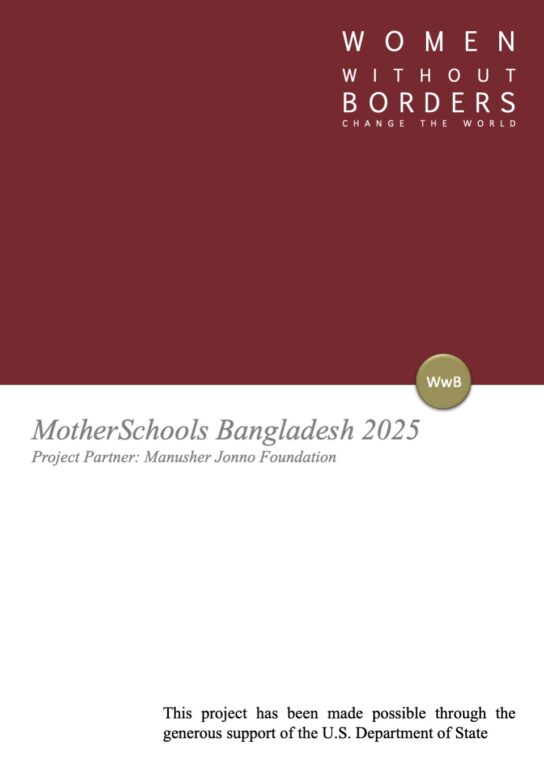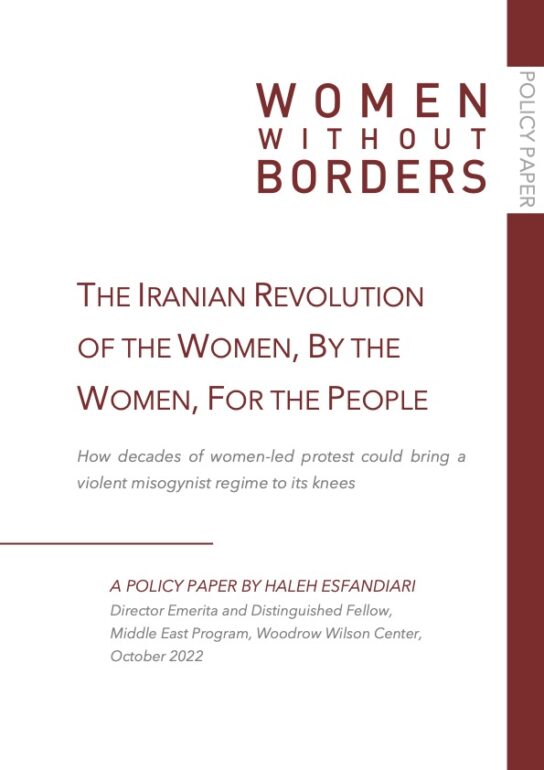The working conference and panel presentation brings together affected and concerned mothers, activists, and experts from around the world to highlight the untapped potential of women—and of mothers in particular—in opposing, challenging, and overcoming violent extremism. Women from across Indonesia, Yemen, Saudi Arabia, Egypt, Israel, and Palestine share their inspirational stories of transforming grief into action, building bridges for reconciliation, and providing civil society with alternative narratives to violent extremism.
Recent developments throughout the Middle East have highlighted the power of civil society to achieve sweeping changes across political, economic, academic, and social boundaries and divides. While women’s pivotal role in civil society increasingly is being recognised, the potential of mothers in particular remains underexplored and untapped. As the first and most critical educators in the lives of the global youth, mothers can play a key role in challenging extremist ideologies in their families and communities. They must be empowered to recognise their responsibility in creating safe and stable environments.
Women without Borders (WwB) invites nine mothers from around the world, all of whom have been affected by violent extremism, to share their stories with one another. The internal conference will give participants the opportunity of meeting with women from divergent cultural contexts to learn from each other’s experiences, share good practices, and discuss cross-cultural similarities and differences in attitudes towards and approaches towards security.
The three-day conference will also include a public panel discussion where participants will present their stories to the public in order to bring awareness to the aftermath and consequences of extremism, and to its impact on everyone to whom the events are connected. This powerful insight into the everyday realities of women who have been affected by extremism around the world will act as a point of departure in alerting the public and policymakers to the potential of mothers in ushering in a more stable and secure future.
Participants’ background stories
Indonesia
Dewirini Anggraeni and Hayati Eka Laksmi
When Hayati Eka Laksmi lost her husband in the 2002 Bali bombings, she was left to raise her two children on her own. Laksmi, now a guidance counsellor, founded the ISANA DEWATA support group to help her family and other families who lost loved ones in the bombings. While Laksmi is helping people to recover from the tragedy, Dewirini Anggraeni is active in the youth peace movement in Indonesia and strives to prevent the spread of extremist ideologies and intolerance. As the coordinator of the Sisters Against Violent Extremism network in Indonesia (‘SAVE Indonesia’) and a committed peace activist, Anggraeni works with students and mothers to strive for a community free from the threat of violent extremism.
Pakistan and Yemen
Zohra Bano Iqbal and Nadia Al-Saqqaf
Zohra Bano Iqbal has dealt with the threat of extremism on a very personal level: while attending secondary school, her son began moving in extremist circles. Iqbal will share the story of her painstaking attempts over the course of two years to bring him back in from the margins of society. Nadia Al-Saqqaf, the trailblazing Editor-in-Chief of Yemen Times, the country’s leading English-language newspaper, took the editorial initiate to make it the Times’ mission to ‘make Yemen a good world citizen’. In 2006, Nadia received the Gebran Tueni Award, also known as the Pulitzer of the Arabic-speaking world.
Nigeria
Esther Ibanga and Khadija Gambo Hawajah
Living and working in the city of Jos, on the border between the majority Muslim North and the Christian South, Esther Ibanga and Khadija Gambo Hawajah have witnessed the horrors and bloodshed of extremist violence first hand. Although they come from opposite sides of an ongoing conflict, Ibanga, minister of the Gospel of Jesus Christ Church, and Hawajah, chairperson of the Plateau State Muslim Women Peace Forum, have dedicated their lives to bringing an end to daily violence by organising peace demonstrations and promoting tolerance.
Israel and Palestine
Robi Damelin and Seham Abu Awwad
Seham Abu Awwad joined the Parents Circle Families Forum (PCFF) after her brother was killed by an Israeli Defense Forces (IDF) soldier and her son was imprisoned. PCFF comprises 500 Israeli and Palestinian families who have lost family members but now work together to promote peace and reconciliation. Robi Damelin and her met through PCFF. Damelin became a peace activist in 2002 when her son, an IDF soldier at the time, was killed by a Palestinian sniper. These once unlikely companions now travel the world together to share their stories and to increase understanding between Israelis and Palestinians.
Egypt
Shaimaa Abdel Fattah
A secondary school teacher in the Egyptian capital of Cairo, Shaimaa Abdel Fattah has found inspiration in the revolution and is determined to work with her students to build a democratic society. Under the old regime, she had begun to create a space for peacebuilding and international student exchanges by using new media and online platforms.




